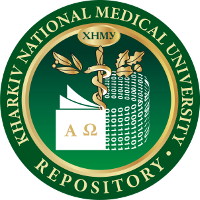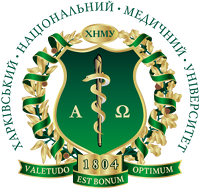Please use this identifier to cite or link to this item:
http://repo.knmu.edu.ua/handle/123456789/5330| Title: | Double blind placebo control trial of large neutral amino Acids in treatment of PKU: effect on blood phenylalanine |
| Authors: | Matalon, R. Bhatia, G. Michals-Matalon, K. Burlina, A. Burlina, A. Braga, C. Fiori, L. Giovannini, M. Grechanina, E. Novikov, P. Tyring, S. Guttler, F. |
| Keywords: | large neutral amino acids phenylalanine phenylketonuria (PKU) phenylalanine hydroxylase |
| Issue Date: | 2013 |
| Citation: | Double blind placebo control trial of large neutral amino Acids in treatment of PKU: effect on blood phenylalanine / R. Matalon, G. Bhatia, K. Michals-Matalon, A. B. Burlina, A. P. Burlina, C. Braga, L. Fiori, M. Giovannini, E. Grechanina, P. Novikov, S. K. Tyring, F. Guttler // Клінічна генетика і перинатальна діагностика. – 2013. – № 1. – С. 44–49. |
| Abstract: | Large neutral amino acids (LNAA) have been used on a limited number of patients with phenylketonuria (PKU) with the purpose of decreasing the influx of phenylalanine (Phe) to the brain. In an open-label study using LNAA, a surprising decline of blood Phe concentration was found in patients with PKU in metabolic treatment centres in Russia, the Ukraine, and the United States. To validate the data obtained from this trial, a short-term double-blind placebo control study was done using LNAA in patients with PKU, with the participation of three additional metabolic centres – Milan, Padua and Rio de Janeiro. The results of the short trial showed significant lowering of blood Phe concentration by an average of 39% from baseline. The data from the doubleblind placebo control are encouraging, establishing proof of principle of the role of orally administeredLNAAin lowering blood Phe concentrations in patients with PKU. Long-term studies will be needed to validate the acceptability, efficacy and safety of such treatment. Phenylketonuria (PKU) is caused by deficient activity of the enzyme phenylalanine hydroxylase (PAH) (Folling 1934; Jervis 1953; Kaufman 1971). The treatment of PKU with diet restricted in phenylalanine (Phe) has become a standard care following the early trials of Bickel and colleagues (1953). Experience with the treatment of PKU indicated efficacy of the low Phe diet with the possibility of diet relaxation in older children. Studies showing decline in intellectual performance when blood Phe concentrations were high resulted in reassessment of the policy of diet relaxation. Gradually the concept of ‘Diet for Life’ emerged on the basis of subsequent studies (Azen et al 1991; Fisch et al 1997; Gleason et al 1992; Michals et al 1985; Walter et al 2002). Decline of intellectual performance when blood Phe concentrations are elevated is the basis for continued diet in PKU. When blood Phe concentrations are high, individuals with PKU often have problems with poor school performance, decline in executive functioning, and changes in white matter of the brain. (Burgard et al 1997; Diamond 2001; Fisch et al 1995; Griffiths et al 1995; Lou et al 1985; Michals et al 1988; Pietz et al 1998; Ris et al 1994; Schmidt et al 1994; Smith et al 1978, 1991; Scriver and Kaufman 2001; Seashore et al 1985; Thompson et al 1990, 1994). In order to prevent blood Phe from exceeding acceptable concentrations, different modes of therapy have been advocated (Scriver and Kaufman 2001). |
| URI: | https://repo.knmu.edu.ua/handle/123456789/5330 |
| Appears in Collections: | Наукові роботи молодих вчених. Кафедра медичної генетики |
Files in This Item:
| File | Description | Size | Format | |
|---|---|---|---|---|
| Гентики_1_13.pdf | 9,45 MB | Adobe PDF |  View/Open |
Items in DSpace are protected by copyright, with all rights reserved, unless otherwise indicated.

